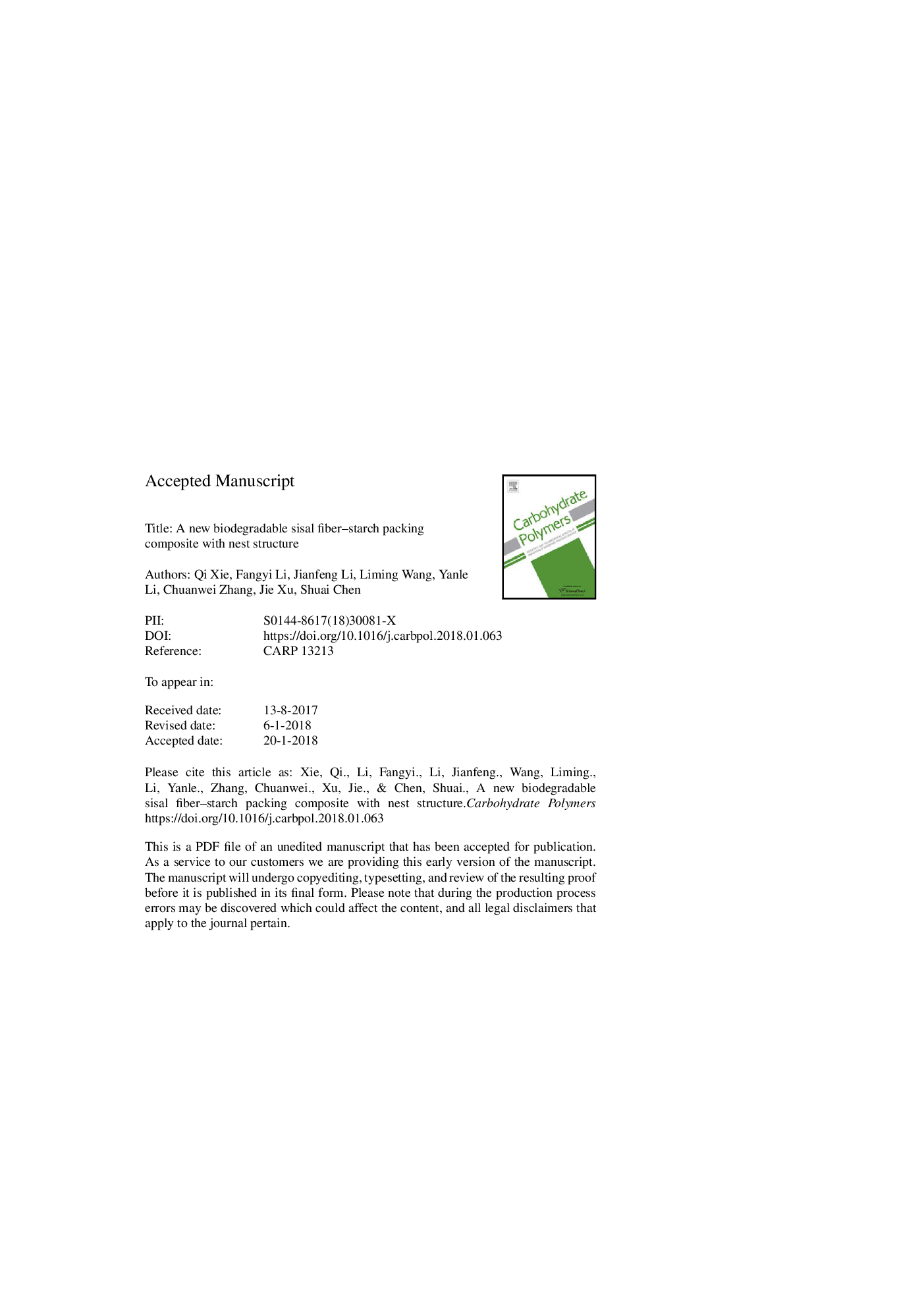| Article ID | Journal | Published Year | Pages | File Type |
|---|---|---|---|---|
| 7783117 | Carbohydrate Polymers | 2018 | 20 Pages |
Abstract
A new completely biodegradable sisal fiber-starch packing composite was proposed. The effects of fiber content and alkaline treatment on the cushioning property of the composites were studied from energy absorption efficiency, cellular microstructure and compatibility between fiber and starch. With increasing fiber content, the nest structure of composites becomes dense first and then loosens, resulting in initial enhancement and subsequent weakening of the cushioning property of the composites. The composite with 4:13 mass ratio of fiber and thermoplastic starch (TPS) exhibit the optimal cushioning property. Alkaline treatment increases the compatibility between sisal fiber and TPS, promotes the formation of dense nest structure, thereby enhances the cushioning property of the composites. After biodegradability tests for 28â¯days, the weight loss of the composites was 62.36%. It's found that the composites are a promising replacement for expandable polystyrene (EPS) as packing material, especially under large compression load (0.7-6â¯MPa).
Related Topics
Physical Sciences and Engineering
Chemistry
Organic Chemistry
Authors
Qi Xie, Fangyi Li, Jianfeng Li, Liming Wang, Yanle Li, Chuanwei Zhang, Jie Xu, Shuai Chen,
